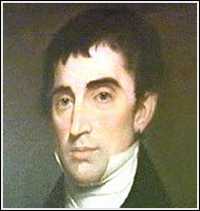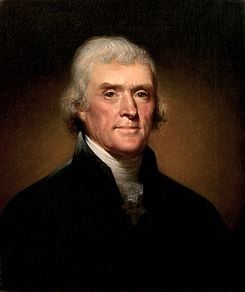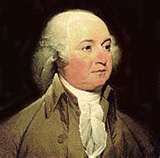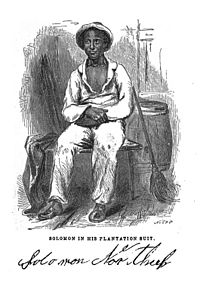On Principle and Pragmatism Ia - U.S. Constitutional Convention [9]
Constitutional Convention






Pragmatism v Principle
THE PRINCIPLES ON WHICH AMERICA IS FOUNDED, and the virtue for which America stands, are concepts that, to me, are reality. I have no doubt they are just as much a reality to Tom Delay, Barney Frank, Harry Reid, Sharron Angle, Abraham Lincoln, and Franklin Roosevelt. Likewise, this true for the likes of George Washington (VA), John Adams (MA), Thomas Jefferson (VA), James Madison (VA), Alexander Hamilton (NY), John Lansing Jr. (NY) and Robert Yates (NY) all delegates to the Constitutional Convention in 1787.
I drop these names because they represent a cross-section of highly intelligent, patriotic Americans with widely divergent beliefs, both political and religious, on how this country ought to move forward ... to progress. All were principled in the highest possible degree; but only some, the ones you've heard of, were pragmatic as well. You have probably never heard of John Lansing Jr. and Robert Yates. That is because they were State's Rightest to the extreme. These two patriots, and make no mistake, they were as patriotic as any other who attended the Convention, did support the Articles of Confederation but would not have anything to do with a document that would give the central government any further powers. When they understood that whatever form the new constitution was going to take was going to give the central government just that, John Lansing Jr. and Robert Yates stood on Principle and left the Convention. They chose not to compromise.
Of those remaining in my list, we have polar opposites, sometimes violently so. John Adams and Thomas Jefferson are one example while Alexander Hamilton and James Madison are another; George Washington was neutral. Adams and Jefferson's opposition is well known and subject of many books; Hamilton and Madison's ... maybe not so well known.
As everyone should hopefully know from high school, there were many plans for a replacement to the Articles of Confederation presented at the Constitutional Convention, ranging from an extremely weak central government to a very strong one; one that would have made our current form seem pathetic by comparison. Alexander Hamilton, however, wanted an entirely out-of-the-box form of centralized power and proposed that America submit, within certain limits, to a lifetime King who was vested with immense power! (He must of read Hobbes' Leviathon.) Now, he wasn't tarred and feathered on the spot because everybody thought he had a very well reasoned out plan and, more importantly, everyone knew the King would be George Washington. Nevertheless, Hamilton's plan was, how do they say it in Washington (wonder where they got that name from?) today, dead-on-arrival.
In the end, there were 100 days of secret partisan bickering, fighting, and other goings-on that the country has only seen a couple of times since, e.g., Social Security, Medicare, Health Care Reform, etc. In the end though, Pragmatism won. What finally did get through the Constitutional Convention was George Madison's formulation of the bicameral Congress and the Three branches of Government with many of John Adam's beloved checks and balances (Thomas Jefferson was opposed to this concept) in place.
What was this really? This was COMPROMISE! Major compromise. These brave men produced a Living (not dead as some would have you believe today) document which was purposefully vague where it needed to be in order get a consensus of the People and the States. Further, it was meant to grow with the times in order to allow those who follow an ability to adapted; this is why so much flexibility was designed in, but yet was still strong enough to accommodate the beliefs and temperaments of all of those who remained at the Constitutional Convention and saw the difficult process through.
This is Pragmatism combined with the proper amount of Principle. This is NOT "We are going to make sure President Obama is a one-term President and will hold up governing to make it so.". It is NOT, "We will repeal ObamaCare". It IS, on the other hand, "We will work as hard as we can to get our principles into the legislation." It IS "We will try to modify the portions of Health Care Reform we do not like". Pragmatism is the Art of Compromise.
The Constitution of the United States of American was not the Best Candidate for any particular delegate (voter) at the Convention but it was the Best Candidate for America.
RELATED HUBS
- American History IV: Do You Know Who You Really Are? Socialist, Liberal, or Conservative? [193*229]
"Socialism", "Liberalism", and Conservatism" are terms used in today's rhetoric as if people knew what they meant. It should be no surprise that a rose is still a rose, except for these words. - On Principal and Pragmatism - II
On September 17, 1787, the Constitution of the Unitied States was returned out of the Constitutional Convention to the Continental Congress who, in turn, debates on and then refers the Constitution to the...







